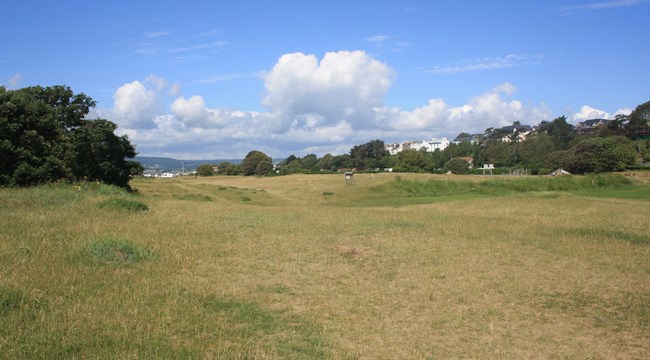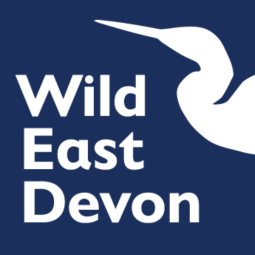The Maer Local Nature Reserve
Content

A Haven for Wildlife
Located close to the seafront the Maer Local Nature Reserve is ideal for a quiet away from the busy beaches and town and is home to an abundance of wildlife.
Visiting in the Summer
Bees, Wasps and Birds
The warm, sandy soil at The Maer provides perfect conditions for insects. Many unusual solitary bees and wasps make their nest tunnels in the sand to raise their young - look for tiny bees flying out of holes in the ground.
Skylarks have suffered a massive decline in recent years. However, there are still a handful of pairs that regularly use The Maer in the summer months for breeding. If disturbed a skylark will fly up singing loudly, filling the air with its beautiful call.
Soil to Support Specialised and Rare Plants
The harsh soil conditions mean that specialised and rare plants can grow on this site. Many small, unobtrusive plants, including a number of tiny grasses, survive on areas of bare soil eroded by visitors. sea holly is locally rare, but grows very well on the seaward side of the nature reserve. Looking like a small blue-grey thistle, sea holly is actually a member of the carrot family!
In early summer you can watch the blooms of the evening primrose opening in the evening. There are many different species of clover growing here, including several nationally important species. Look out for the fluffy flower heads of hare’s foot clover between June and September which, as its name suggests, resemble little rabbit feet – unmistakable.
Plan Your Visit
- Parking: There is a pay and display car park opposite The Maer
- Location: On the A376 to Exmouth, follow signs to the seafront. Drive towards the eastern end of the esplanade and park. The Local Nature Reserve lies behind the large sand dunes.
- What3words: West Entrance ///nuns.dash.fine East Entrance ///lower.ocean.saying
- Walking information: There are no formal access paths around the nature reserve, and you are free to explore fully.
- Access: The reserve is level, but the ground is uneven.
- Dogs: Dogs are welcome but must be kept under close control, and owners should clean up after them.
- Facilities: Benches.
Opening Hours
The Maer Local Nature Reserve like all East Devon District Council nature reserves is open to the public free of charge year-round.
Directions
Find directions to The Maer Local Nature Reserve nature reserve with Google Maps.
